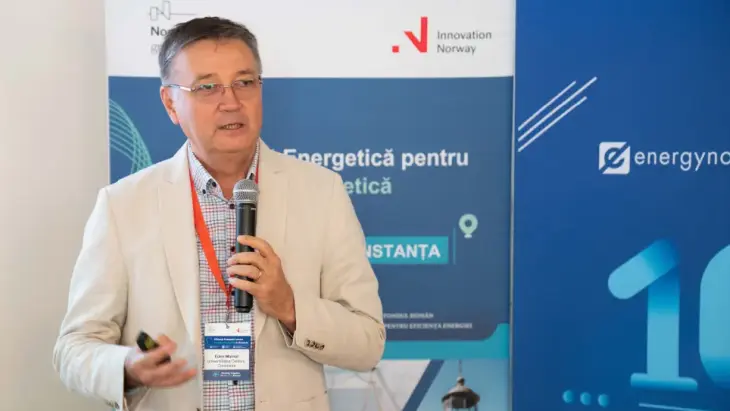Ovidius University of Constanța is developing a project with international participation involving the creation of a methodology for the analysis of energy efficiency in a certain system, said university professor Eden Mamut, director of the Institute for Nanotechnologies and Alternative Energy Sources in Ovidius University of Constanța, during the event “Energy efficiency for energy transition” organized in Constanța by Energynomics together with the Romanian Fund for Efficiency Energy – FREE and the Directorate for Energy Efficiency within the Ministry of Energy.
This method was used by the University to look at the heating system in Constanța, but they had trouble getting data on how much power and natural gas were used from some utility companies.
“It is a tool that local authorities could use. But we have big problems with accessing data from utilities companies. We had to take stock of the entire city of Constanța, but we did not manage to obtain the consumption of natural gas and electricity. We hit a wall both at Enel and beyond,” said Mamut.
Also, there are disparities in the indicators calculated by the National Institute of Statistics and those from the agencies within the Ministry of Energy. In addition, a number of such indicators were initially defined for a specific measurement purpose but have since undergone changes or reinterpretations.
“To introduce a new indicator is an extremely extensive process that requires resources and a whole scaffolding of procedures. Some indicators are connected with everything that happens in the economy and even at the level of society, so it is very difficult to measure such an indicator, and not only in Romania”, added Mamut.
Also, from 2022, the University also uses augmented reality tools with which it runs heating system diagnosis programs.
“We have a systemic problem with trained consultants. Young people, due to the way they are educated from an early age, start avoiding the engineering field. We need to rethink the entire education system with increasing emphasis on the area of education at very young ages,” he added.
According to Professor Mamut, the University is also developing a data center called Ovidius Cyber Cloud and is working on a concept of floating platforms that can descend underwater during storms. A first such concept will be applied on Lake Siutghiol in 2024 and will also be followed by experiments at sea.
The conference in Constanța was the third of a series of 5 scheduled by the Energynomics communication platform, the Romanian Fund for Energy Efficiency – FREE and the Directorate for Energy Efficiency within the Ministry of Energy. The project is financed by Norwegian Grants 2014-2021. The next conferences are scheduled in Iași, on October 19 and 20, and in Bucharest, on November 16 and 17.
